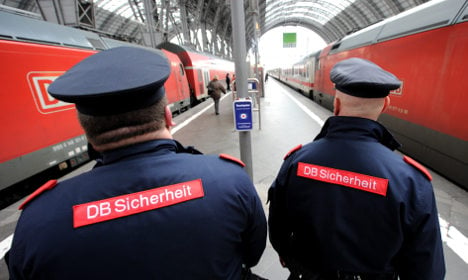“Nationwide the number of security forces will increase from 3,200 to 3,700 this year,” head of company security Gerd Neubeck told daily Hamburger Abendblatt.
The plan includes sending more security out to man trains and stations around football games and concerts, the company said. More than two-thirds of all reported bodily harm happens in the periphery of such events, Neubeck said.
Hamburg will also be targeted, mainly in “hot spots like the main train station, the Reeperbahn and in Harburg,” he said.
The Reeperbahn red light neighbourhood and the district of Harburg are notoriously rough areas.
Additional security is also necessary due a “dramatic” increase in the number of raw material thefts, costing Deutsche Bahn several hundred thousand euros each year, Neubeck said. Signal cables, aerial lines, and tracks are all going missing due to rising prices for such materials, he said.
“The damage is mainly train cancellations and delays that arise from the necessary repairs,“ he said.
DAPD/ka



 Please whitelist us to continue reading.
Please whitelist us to continue reading.
Member comments